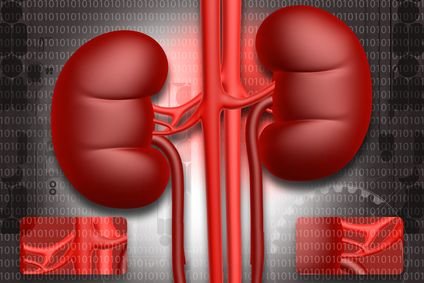Explanation of Some of the Most Common Kidney Diseases
Disorders that affect your kidneys are called kidney diseases, and can include hereditary kidney diseases. The kidneys remove the waste products from your body, regulate the level of chemicals in your blood and make certain hormones. Removing waste products and excess fluids is a major function of your kidneys. This waste and excess fluid are removed from your body through the urine.
Highly complex steps of excretion and reabsorption are involved in the production of urine. You need this process in order to keep a stable balance of your body chemicals. The kidneys perform the critical regulation of your body’s potassium, acid and salt content. The kidneys also produce vitamins and hormones that affect the function of other organs. A hormone made by the kidneys promotes the production of red blood cells, plus other hormones made by the kidneys help to control your blood pressure and some more to help control your metabolism of calcium.
Your kidneys are found at the lowest level of your rib cage, one on each side of your spine and each are about the size of a fist. Each one holds functioning units numbering around one million, known as nephrons. Each nephron is made up of a filtering unit of very small blood vessels, which is called a glomerulus, attached to a tubule. When blood goes into this glomerulus, it gets filtered and the remaining fluid goes along the tubule. Inside the tubule water and chemicals are removed or added from the filtered fluid, depending on what your body needs and the end product results in the urine that is excreted.
Types of Kidney Diseases
Usually, kidney disease will affect both kidneys at once. Kidney failure occurs when the ability of the kidneys to remove and control water and chemicals is very damaged by disease. Then, waste and excess fluid will buildup, causing swelling which is severe. There are several different types of kidney related diseases, most of which can be classified under acquired, congenital or hereditary.
Acquired Kidney Diseases – There are a lot of this type of kidney disease, and the overall term for them is nephritis, which means inflammation of the kidney. The most commonly seen one is called glomerulonephritis, of which there are many causes.
Congenital Kidney Diseases – You will usually see a malformation of the genitourinary tract with this disease, and that will generally lead to some type of obstruction which then causes infection and destruction of kidney tissue. This destruction will eventually turn into chronic kidney failure in many cases.
Hereditary Kidney Diseases – This type can be passed on from either males or females and usually will produce clinical symptoms from teenager to adult. Polycystic kidney disease is the most well-known hereditary kidney condition. Other conditions in this category are Alport’s syndrome, cystinuria, primary hyperoxaluria, medullary cystic kidney disease and hereditary nephritis.
Polycystic kidney disease, one of the most common kidney diseases, is one in which cysts develop in your kidneys. Symptoms include kidney stones, high blood pressure, bloody urine, frequent urination, headache and flank pain. It can cause you to have kidney failure and urinary tract infections.
Alport’s syndrome is a disorder in which your kidneys become damaged due to an alteration in the gene that produces collagen. This disease is usually found in males and symptoms include a cough, eye swelling, feet and ankle swelling, hearing loss and bloody urine.
Medullary cystic kidney disease is a disorder where cysts form in the middle of your kidneys. Signs of this disease include frequent urination, itching, sleepiness, headache, nausea, confusion, delirium, and you can even fall into a coma.
Renal Agenesis – This happens when one or both kidneys fail to develop on a fetus. Therefore, one kidney can be present, or it can happen where no kidneys develop or just very little of one develops. Both types have very different clinical procedures, but unilateral agenesis is of course more favorable.
Glomerulonephritis – this is a kidney disease where the part of your kidneys which helps filter out waste and fluids from your blood is damaged. It can be caused by problems in your body’s immune system and many times the cause of it is not known. With this disease, you can have a loss of blood and protein in your urine. This condition can develop quite rapidly, resulting in you losing the function of your kidneys within weeks or months.
Cancer Therapy Related Kidney Failure – It is also believed that cancer chemotherapy can bring about the failure of your kidneys by damaging the blood vessels, structure and cells of a kidney.
There are so many other forms of kidney disease, but the above are some of the most common and well-known. If you feel that you are having any problems with your kidney function or you have any symptoms of one of these diseases, you should go see your doctor so that you can medically tested and treated.
| Written by: | Michal Vilímovský (EN) |
|---|---|
| Education: | Physician |
| Published: | January 14, 2013 at 6:17 AM |
| Next scheduled update: | January 14, 2015 at 6:17 AM |
Related articles
Get more articles like this in your inbox
Sign up for our daily mail and get the best evidence based health, nutrition and beauty articles on the web.





Ache in left arm that you should not ignore
Alkaline water dangers: why you should not drink it
How to Avoid Sleepiness While Studying?
23 Foods That Increase Leptin Sensitivity
Low dopamine (e.g. dopamine deficiency): causes, symptoms, diagnosis and treatment options
Swollen taste buds: the ultimate guide to causes, symptoms and treatment
Thin endometrial lining: causes, symptoms, diagnosis and treatment
Pimples inside nose: the complete guide
Holes in tonsils: definition, symptoms, treatment and prevention
How to deal with an ingrown hair cyst
Allegra vs. Zyrtec vs. Claritin
Allergy to penicillin and alternative antibiotics
How to get rid of phlegm (excessive mucus) in throat? Detailed guide to medical and home remedies, symptoms and causes
What causes stomach ache after meals?
Liver blood test results explained